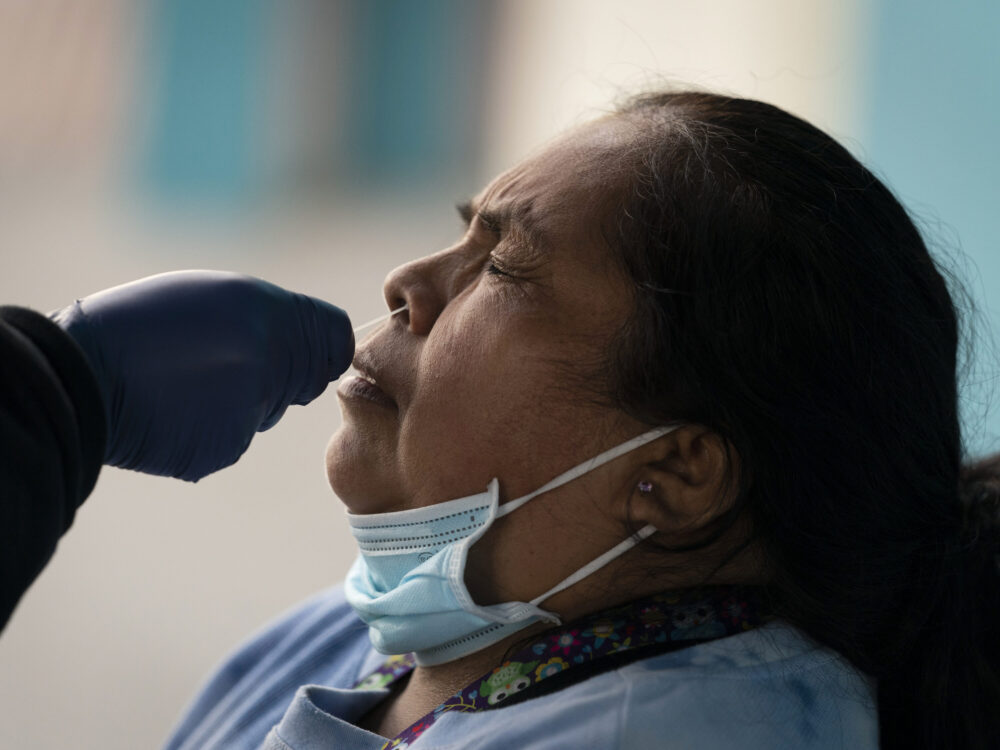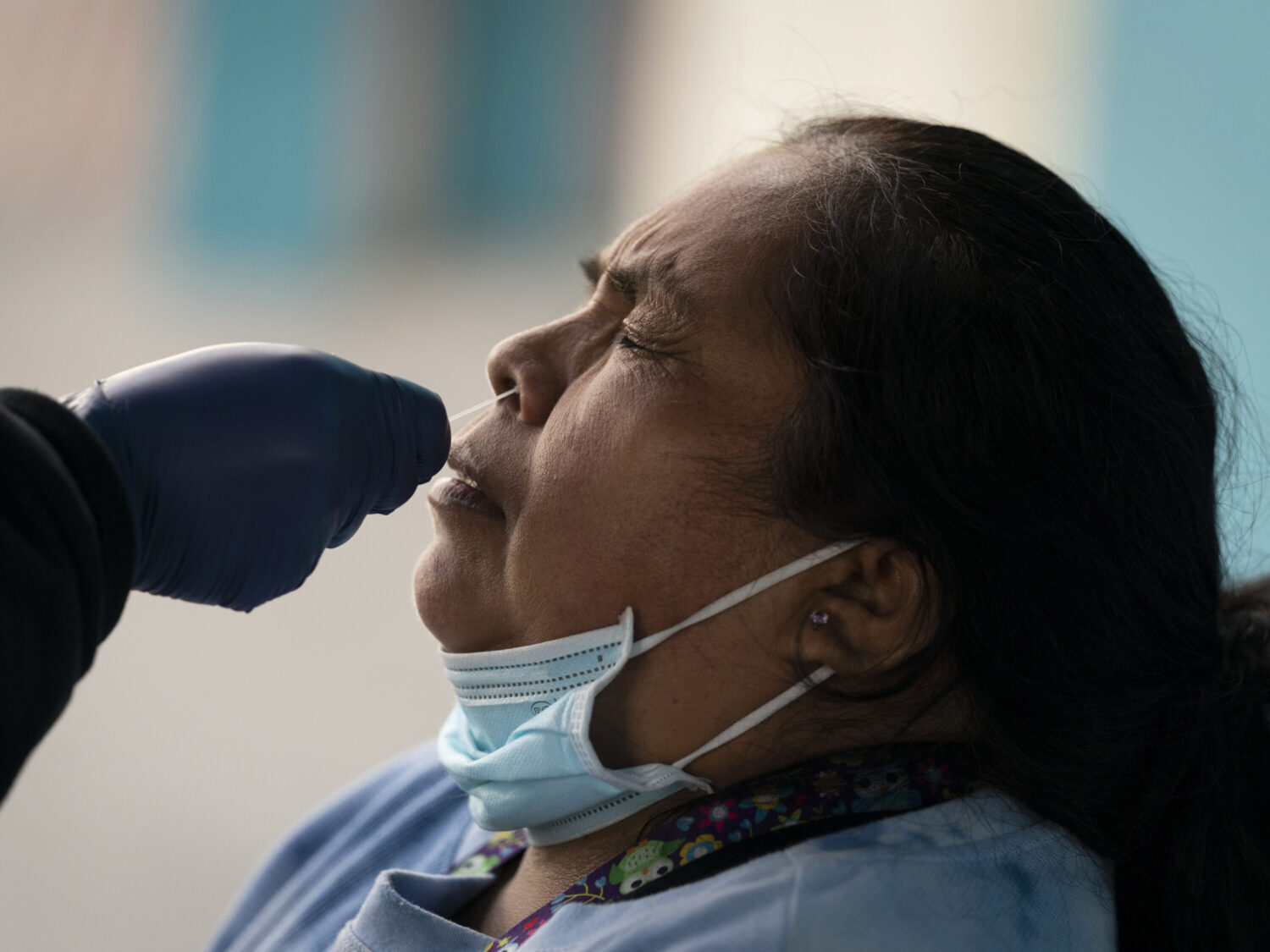
Jae C. Hong / AP
A study from Houston Methodist found some patients with lingering COVID-19 symptoms aren't getting enough blood to their heart when exercising or doing physically strenuous activities.
The ability of endothelial cells, which play a key role in dilating the arteries and helping get blood to the heart, was diminished by 20 percent among the 101 long COVID patients who participated in the study.
“When a patient exercises, they need a little bit more blood delivered to the heart to be able to provide blood to the entire body," said Dr. Mouaz Al-Mallah, a cardiologist and co-author of the paper. "But in some patients with COVID, we noted that it’s not increasing to the degree that it should be."
The majority of long COVID patients in the study reported symptoms doctors suspect could be cardiovascular-related. Through PET scans, they found these patients were twice as likely to have unhealthy endothelial cells that line the side of the heart and blood vessels.
"This may potentially explain why some patients are having chest pain and shortness of breath because when they need more blood, their heart is not getting that extra blood," Al-Mallah said.
Patients with unhealthy endothelial cells are at higher risk of heart failure, of needing unplanned catheterization and bypass surgery, and of death.
"We know that this condition exists in other situations like in diabetics, but has not been described before among COVID survivors," Al-Mallah said.
These patients were likely infected with the delta and beta variants of the coronavirus because patients were infected before the first omicron surge last winter.
Dr. Al-Mallah said there needs to be further research into whether variant type, severity of the patient's illness or the amount of time since the patient was infected plays a role in these lasting effects of COVID-19.
Ultimately, he hopes this information can lead to prevention and treatment for patients.
